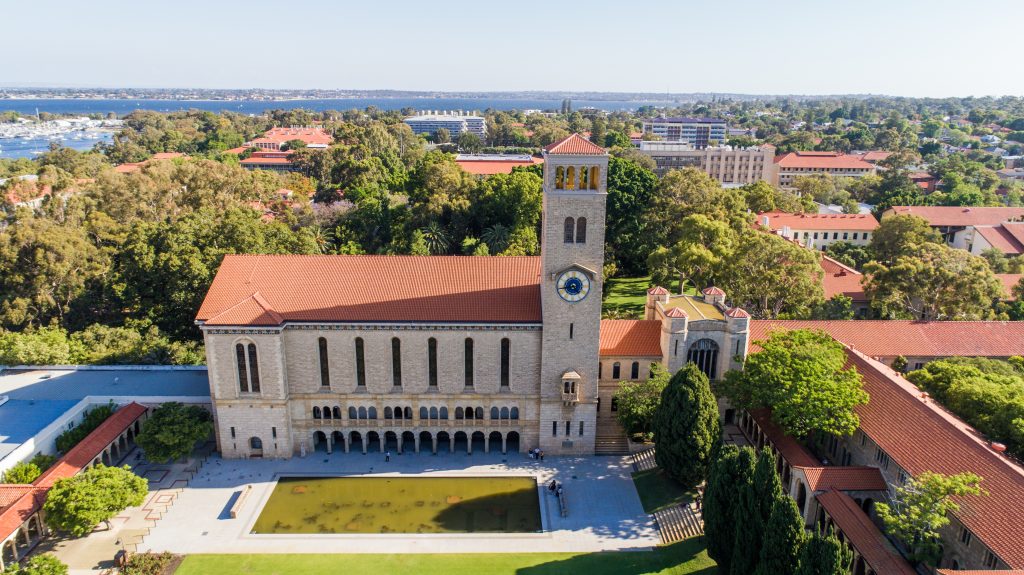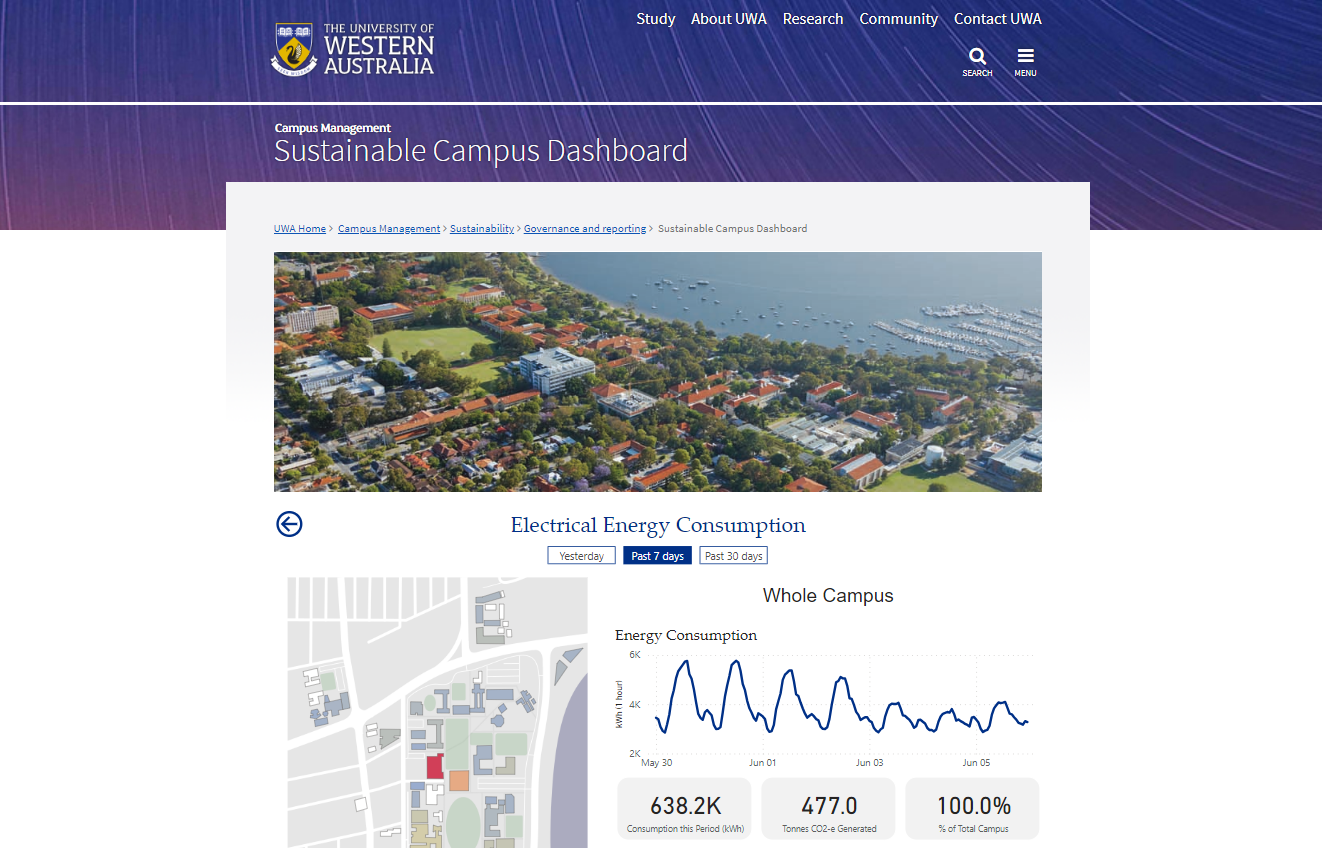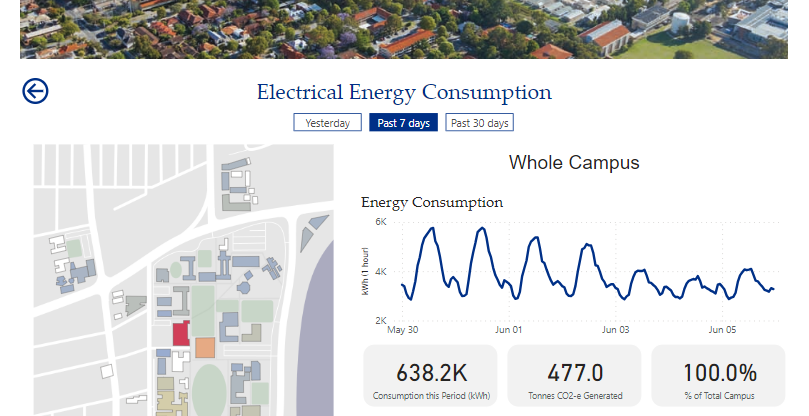
The University of Western Australia releases new version of its innovative Sustainable Campus Dashboard
Powered by Microsoft cloud and data analytics technologies, the public dashboard improves transparency of the university’s environmental impact
The University of Western Australia (UWA) has partnered with Microsoft to improve the transparency of its environmental footprint, releasing a major update to its innovative Sustainable Campus Dashboard as the university aims to become net zero in all its operations by 2025.
The public dashboard was first launched in October 2022 to help UWA implement energy-efficient solutions based on a better understanding of electrical and thermal (heating and cooling) energy usage at its Crawley campus in Perth.
Using insights from smart meters and other sources that are ingested into UWA’s data platform on Microsoft Azure, the updated dashboard now includes comprehensive data on electricity and gas usage, water usage and waste generation and recycling. This provides campus managers with a more detailed view of UWA’s carbon footprint, making it easier to optimise building operations.
“We want our community, both internal and external, to see that we’re taking operational sustainability seriously, and that means being transparent with the impact of our operations,” said Trevor Humphreys, Director of Campus Management at UWA.

Over time, we’ll be able to showcase the improvements we’ve made to our Crawley campus and see this reflected in our carbon footprint.
The new-look dashboard is aligned with the university’s goals to achieve net zero emissions in all its operations by 2025. It also supports UWA’s Environmental Sustainability Strategy by improving transparency and making the university accountable for its sustainability performance.
Staff at the Crawley campus can track their building’s resource usage, enabling them to better understand their carbon footprint as part of the wider campus. In addition, the Dashboard can be used in the university’s teaching and research by enabling staff, students and the wider community to analyse real-world data to gain valuable insights into building performance.
“We recognise sustainability to be our collective responsibility,” said Humphreys. “Data shared with everyone can play a powerful role in unifying efforts.”

Applying business intelligence to operations
UWA leveraged its existing investment in Microsoft technologies to create the dashboard. Using a combination of Microsoft Azure Databricks and Azure Data Factory, the solution ingests data from various sources. These include Internet of Things (IoT) devices that measure energy and water consumption, as well as reports supplied by waste contractors.
The information is staged in Azure Data Lake Storage Gen2 before being modelled into a star schema in Azure SQL Database. This is then used to generate a Microsoft Power BI report that’s embedded as a dashboard in UWA’s website and updates daily. Data can also be shared on digital billboards throughout campus to raise awareness of the university’s sustainability performance.
In addition, UWA uses the data to create more detailed internal reports that further enhance operational decision making about the use of its facilities.

By applying business intelligence to university operations, we’re able to directly impact UWA’s strategic goals and showcase the university as a sustainability leader, said Pete Seddon, Chief Information Officer at UWA
The university’s IT and sustainability team worked collaboratively with Dr Jason Hamer, managing director of data consultancy dARTa, to create the dashboard. UWA plans to release version three by the end of June 2023, which will include data on the campus’ biodiversity and canopy coverage.
“We’ll also include our deep learning model that forecasts energy consumption in 30-minute intervals one day in advance, which will be very valuable in helping UWA optimise its energy resources,” said Dr Hamer.
UWA also plans to expand the dashboard to include data from its other campuses and facilities. This will create a more holistic representation of the university’s environmental sustainability performance and improve its reporting capabilities.

Brett Shoemaker, Chief Sustainability Officer at Microsoft Australia and New Zealand, said: “We’re incredibly proud to partner with The University of Western Australia on its Sustainable Campus Dashboard. This cutting-edge data solution offers unprecedented transparency into the university’s environmental footprint and enables UWA to make measurable progress on its sustainability goals.”
You can view UWA’s Sustainable Campus Dashboard here.















